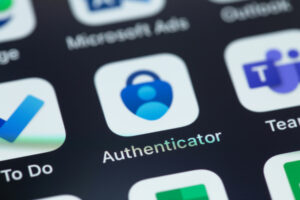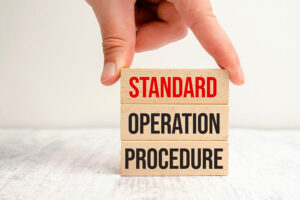Soft skills are not a personality trait – unchangeable and inherent to each person. In our society, we tend to assume that people who are likeable, who are good teammates, and who work well with others are inherently sociable. That they were born this way and have always been excellent interpersonal diplomats.
A coworker who makes friends easily or can deliver bad news without hurting feelings is considered naturally charismatic. Another coworker who is awkward in groups or often puts their foot in their mouth is considered naturally unsociable. While it’s true that our personality and nature contribute to our social abilities, what we know as ‘soft skills’ are really learned. And the social ‘naturals’ likely learned most of their skills in childhood.
Socialization and Early Childhood
When we are young children, we’re all unsociable little monsters. Before we even have clear memories, our parents, teachers, and older siblings teach us how to share. And, let’s face it, some children are taught better than others. A child with loving parents who teach them their “Please’es and Thank-you”s, who advise against insulting others, and who teach that a shared treat is more rewarding than a hoarded one are also more likely to have excellent soft skills as adults. While a spoiled only-child who is told they don’t have to share is more likely to be a selfish and uncooperative adult.
However, by as early as 2nd or 3rd grade, we start getting the message that our social success is inherent. Eight-year-olds who don’t make friends easily may be labelled as ‘anti-social’ while those whose parents take the effort to socialize them very young are labelled as ‘charismatic’ and generally more likeable as people. We take on these labels and by the time we’re adults, it’s assumed that our social skills are static. You may be able to learn one or two new techniques like how to debate, structure a negotiation or deliver a speech, but how we deal interpersonally with others is assumed to be a permanent personality trait.
Soft Skills Are Not Set In Stone
But this simply isn’t true. Soft skills are not set in stone because they can always be learned. Consider a professional in an international company who transfers to an office in a new country. It may take her a few months, but eventually, she learns the new social customs. How to be polite in the new culture, how to collaborate with their new coworkers, and how to be diplomatic with coworkers and superiors. How are these not learned soft skills?
Other examples are less broadcasted and less socially acceptable to talk about, but people are teaching themselves new soft skills all the time. The funny thing is that it usually requires a life change to pretend you always had the soft skills you’re trying to learn. A young adult with few friends in school moves to a new town and starts practising charisma with a new group of people who don’t have a concept of them as inherently introverted or awkward. The soft-skill mistakes we make in a previous romantic relationship like lack of empathy are learned and we show more empathy in the next relationship.
Businesses shouldn’t assume that employees will take on improving their soft skills on their own, or even if they do, that the process will be done in the most efficient or effective way possible. That’s why businesses need to take soft skills seriously and begin training them in a structured and intentional way.
The Risks of Employees Self-Learning Business Soft Skills
We are constantly teaching ourselves new soft skills, but we must do so with the skills and experiences we already have. This means that the way your employees teach themselves to improve will vary from person to person. Let’s say negotiation is an important part of a position. Not all of your employees will naturally know how to negotiate well, but they know they need to learn. One took debate class in High School and has an idea of how to structure a negotiation, respect the points of the opposition, and build to a constructive conclusion. Another learned when they were young that arguing hard usually got them what they wanted.
The first will build on those initial skills to become a considerate and effective debate artist. The second will struggle to teach themselves the basics and will probably remain too aggressive until someone who knows the way takes the time to show them. Along the same lines, an employer may tell their team to learn how to use ‘constructive criticism’, but this phrase also tends to bring a sense of dread to experienced professionals. Why? Because not everyone understands what makes criticism ‘constructive’ and how to avoid being hurtful. Those who fail do so because no one ever taught them as children and they didn’t pick it up naturally up along the way – not because they’re trying to be mean.
This is what in-line professional training is for. But not enough employers realize and accept just how much improvement they could see by training soft skills. If you really want your employees to be experts at negotiation, communication, collaboration, and constructive criticism, you must teach them how it’s done.
Teaching Soft Skills as Professional Development
Not only is it better for your employees to know the proper way to implement the soft skills needed in business. But what if all your employees knew how to negotiate in the exact same way? What if there was a structured way to offer constructive criticism that every employee knew how to offer and accept smoothly? When you hire for soft skills or expect them to develop naturally, you will get a large mix of abilities, techniques, approaches, and responses. However, when you train soft skills, even to those who already have a working set will learn how to do it in a unified, organized way that will interface perfectly with those who are learning these skills for the first time.





